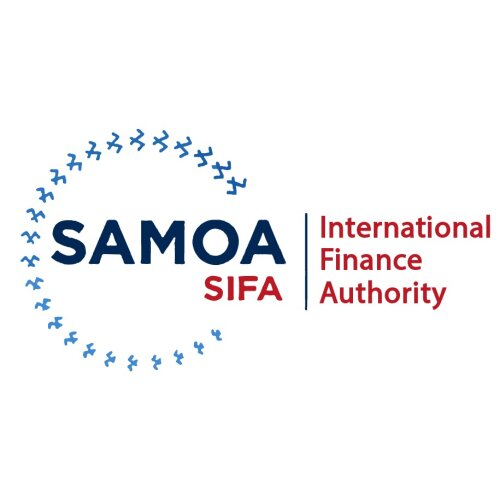Best Climate Change Law Lawyers in Samoa
Share your needs with us, get contacted by law firms.
Free. Takes 2 min.
Or refine your search by selecting a city:
List of the best lawyers in Samoa
About Climate Change Law in Samoa
Climate Change Law in Samoa refers to the system of policies, statutes, and regulations that address the causes and effects of climate change within the country. As a small island developing state, Samoa is particularly vulnerable to the impacts of climate change, including sea level rise, extreme weather events, and shifts in natural resources. The government of Samoa has developed a framework of laws and policies aimed at both mitigating climate change by reducing emissions and adapting to its unavoidable consequences. These laws also facilitate international cooperation, sustainable development, and the protection of human rights in the context of a changing climate.
Why You May Need a Lawyer
People in Samoa may need legal advice or representation in climate change matters for several common reasons. These can include:
- Understanding compliance obligations under environmental and climate-focused legislation
- Assisting communities in seeking redress for damage caused by climate-related events
- Advising businesses on sustainable practices and regulatory requirements
- Guiding landowners on issues like relocation, compensation, and land rights due to environmental changes
- Representing individuals or groups in public participation or consultation processes
- Assisting local governments or NGOs in designing and implementing climate projects
- Engaging in international or regional climate negotiations and agreements
A lawyer can help you navigate these complex and evolving legal issues, protect your rights, and clarify your responsibilities under the law.
Local Laws Overview
Samoa has enacted a range of environmental and climate-related laws to address both mitigation and adaptation. Key elements include:
- National Disaster Management Act 2007 - Establishes disaster risk management and response policies, which include strategies for climate-induced events.
- Environment Act 1989 - Provides a framework for the sustainable management and protection of Samoa’s environment, including biodiversity and natural resources.
- Disaster and Emergency Management Act 2007 - Outlines responsibilities for disaster and climate risk reduction at various government levels.
- Samoa’s National Adaptation Programmes of Action (NAPA) - Addresses priority adaptation needs and defines sectoral responses to climate change risks.
- Climate Change Policies and Strategies - Samoa has adopted nationwide policies to ensure adaptation, promote resilience, and meet international commitments like the Paris Agreement.
- Land Use and Coastal Management Regulations - Address the management of coastal zones, including responses to sea level rise and erosion.
- Regulations on greenhouse gas emissions - Implemented through both sectoral policies and national strategies to lower emissions from energy, waste, and land use.
These laws often intersect and may require specialized legal knowledge to interpret and apply effectively.
Frequently Asked Questions
What is climate change law?
Climate change law refers to the rules, regulations, and policies aimed at addressing both the causes of climate change and its impacts. In Samoa, this includes laws on environmental protection, disaster risk reduction, and land management.
What are my obligations under Samoan climate laws?
Your obligations will depend on your activity or sector. Individuals, businesses, or community groups may be required to follow sustainable practices, comply with environmental permits, or partake in disaster preparedness initiatives.
Does Samoa have laws to protect people from climate change impacts?
Yes, several laws and policies explicitly aim to enhance resilience, offer protection in the event of disasters, and provide processes for relocation or compensation if climate change directly affects your land or livelihoods.
Can climate change law affect land ownership or use?
Climate change laws and adaptation regulations can affect land use, especially in coastal areas prone to erosion or flooding. There may be restrictions, managed relocation policies, or development approval requirements in these areas.
How can I act if my property is threatened by climate change effects?
You can seek advice from a lawyer about compensation, relocation options, or participating in government support programs. It is important to understand your rights and the governmental processes that apply.
Can I challenge a development project for environmental reasons?
Yes, Samoan law often includes provisions for public participation and the ability to raise concerns or lodge objections regarding projects that may exacerbate climate risk or harm the environment.
Are there penalties for violating climate change-related laws?
Yes. Penalties can include fines, remediation orders, or even criminal liability, depending on the nature and seriousness of the violation under the relevant legislation.
How is Samoa meeting its international climate commitments?
Samoa is a party to the Paris Agreement and other international treaties, implementing national laws and policies to reduce greenhouse gas emissions and adapt to climate impacts in line with these agreements.
What support exists for communities affected by climate change?
There are various adaptation programs, financial mechanisms, and legal procedures designed to assist communities through funding, relocation support, or community-based resilience initiatives.
Where should I start if I need legal help with a climate issue?
Start by consulting a legal professional experienced in climate change law or contacting relevant government agencies for guidance, depending on the specifics of your issue.
Additional Resources
If you need more information or assistance in Climate Change Law in Samoa, the following resources may be helpful:
- Ministry of Natural Resources and Environment (MNRE) - Leads climate and environmental policy and can provide guidance on local regulations.
- Attorney General’s Office - Responsible for the interpretation and application of Samoan law, including environmental statutes.
- Samoa Law Reform Commission - Conducts reviews and provides recommendations on legislative improvements, including those relating to climate change.
- Ministry of Works, Transport and Infrastructure - Oversees land use, infrastructure development, and relevant regulatory enforcement.
- Local Environmental NGOs - Such as the Samoa Conservation Society, which provides advocacy and educational resources on climate resilience.
- UNDP Samoa - Offers regional resources and information on climate adaptation projects and policies.
Next Steps
If you or your community are facing legal issues related to climate change in Samoa, consider taking the following steps:
- Identify your specific concern or need, such as property impact, business compliance, or community resilience.
- Consult with a qualified lawyer familiar with climate, environmental, or administrative law in Samoa.
- Contact the relevant government agency for guidance on procedures, project approvals, or adaptation programs.
- Gather all necessary documents and evidence, such as land titles, permits, or correspondence relating to your issue.
- Explore participation in community consultations or adaptation programs to stay informed and involved in local planning.
Early legal advice can help protect your rights, ensure compliance with the law, and provide peace of mind in navigating Samoa’s evolving climate change legal environment.
Lawzana helps you find the best lawyers and law firms in Samoa through a curated and pre-screened list of qualified legal professionals. Our platform offers rankings and detailed profiles of attorneys and law firms, allowing you to compare based on practice areas, including Climate Change Law, experience, and client feedback.
Each profile includes a description of the firm's areas of practice, client reviews, team members and partners, year of establishment, spoken languages, office locations, contact information, social media presence, and any published articles or resources. Most firms on our platform speak English and are experienced in both local and international legal matters.
Get a quote from top-rated law firms in Samoa — quickly, securely, and without unnecessary hassle.
Disclaimer:
The information provided on this page is for general informational purposes only and does not constitute legal advice. While we strive to ensure the accuracy and relevance of the content, legal information may change over time, and interpretations of the law can vary. You should always consult with a qualified legal professional for advice specific to your situation.
We disclaim all liability for actions taken or not taken based on the content of this page. If you believe any information is incorrect or outdated, please contact us, and we will review and update it where appropriate.
Browse climate change law law firms by city in Samoa
Refine your search by selecting a city.











